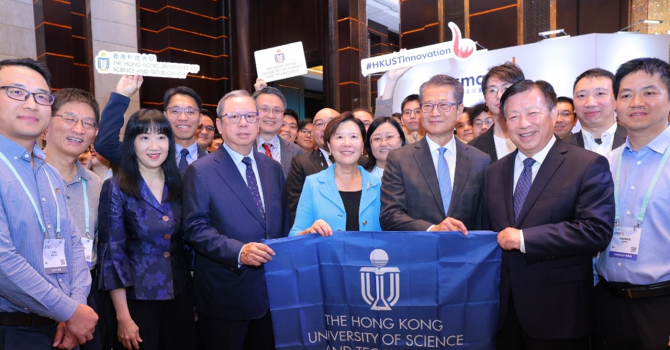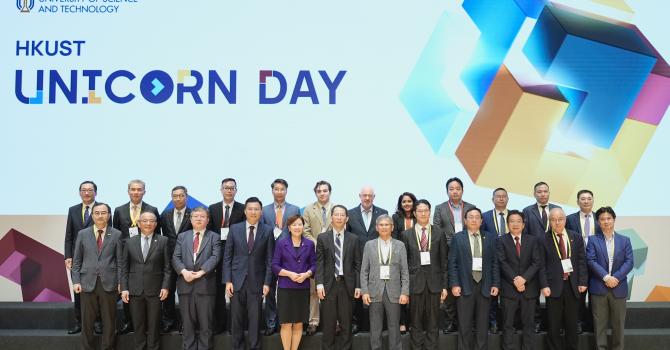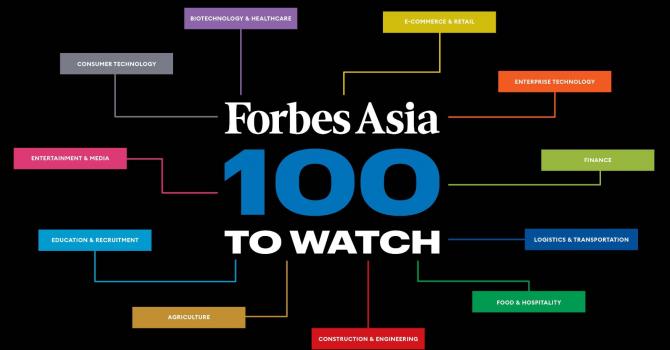Alumni Kaleidoscope: Alan Zhuang - Mphil(TLE)
Billions of people worldwide today are doing computing in the cloud, but the cloud is getting overloaded! And exponential growth in the demand for bandwidth resources is on course to cause major bottlenecks worldwide without a change in technology. This is where far-seeing Alan Zhuang, founder and CEO of Pear Limited, comes in. A former Tencent engineer and HKUST alumnus, Alan has found himself in just the right place at just the right time and with just the right help to introduce fog computing, which is basically cloud computing at ground level. His own hard work, multidisciplinary skills, ingenuity and management style have helped a lot too.
It all started in Anhui Province, the location of the “Pear Capital” of China, where Alan grew up. As a boy studying the “Three-Character Classic,” Alan learned the virtue of sharing from the famous story of a 4-year-old boy name Rong who was willing to share his pear with his two brothers. Today, the sharing economy is propelling numerous online businesses to success, as consumers and vendors enjoy win-win relationships that sidestep traditional business models. In 2017, Pear Limited began working hard to enhance the infrastructure to enable the phenomenon to grow in coming years.
Basically, fog computing is about providing a way for traditional centralized cloud service providers (CSPs), content providers (CPs) or content delivery networks (CDNs) to outsource some of their compute, storage and bandwidth needs to a decentralized network, just as blockchain technology decentralizes transactional databases. Pear Fog does this by combining smart routers, unused broadband bandwidth and advanced swarm intelligence (SI), which consists of a population of artificial intelligence (AI) agents interacting with one another and with their environment, just as a swarm of bees forms a bee colony in a new environment. Although there is little or no centralized control structure dictating how individual agents should behave, local and random interactions between the agents lead to the emergence of "intelligent" global behavior, even though it’s unknown to the individual agents, which may otherwise be sitting idly in users’ homes or offices. Thanks to Alan’s knowledge of statistics and programming, Pear Fog also includes some advanced forecasting algorithms that help to fully utilize available resources.
The eureka moment for Alan came during his time as an engineer at Tencent in 2013, where he was inspired by how the company built low-cost cloud platforms by multiplexing different types of services on the same resource pool. He postulated the idea that people could do similar things at the edge of the Internet, i.e., on devices such as smart routers, and make a business out of it. When he later attended HKUST for his MPhil in Technology Leadership and Entrepreneurship (TLE) with Computer Science and Engineering (CSE) as his home department, new knowledge allowed him to further refine his business ambition into concrete ideas. His supervisors, Professor Mitchell Tseng, Professor Gary Chan and Professor Terrence Yee were instrumental in encouraging him to start his own business.
Despite his determination, however, Alan encountered financial challenges that made it difficult to hire the staff he needed to build his business. In this aspect, he appreciates the connections lined up by his alma mater. Alan received HKD500,000 in early 2016 from the Technology Start-up Support Scheme for Universities (TSSSU). Later, a networking event hosted by the HKUST Entrepreneurship Center for aspiring students to seek investors brought Lenovo and Alan together. Pear has grown rapidly with Lenovo’s seed money and now employs 18 staff members. Its recognition has also grown exponentially, and its major clients now include some Internet and hardware powerhouses, such as Tencent, VNet, Lenovo, JCG, NetCore and Huawei. By mid-2018, Pear has completed the distribution of fog nodes throughout China. It has been not only the most important fog computing resource and service provider of the largest Internet company of China, but also a strategic cooperation partner of two of the world's hardware giants --- the world's largest telecom equipment manufacturer and the world's largest PC vendor.
The firm’s motto, “Pair with Pear, share everywhere,” not only highlights the company’s vision for fog computing, but also underlines Alan’s core management value, i.e., work is more than just numbers and salary; rather it is also about helping each employee develop his or her potential. Thus, the Pear team holds a sharing session every week to share and learn from each other, so as to ignite everyone’s own potential to succeed.
To develop the core idea of sharing economy, Pear has launched an incentive program named OpenFogOS. Any holder of idle resources (including routers, NAS, PCs, servers and VMs) can join this program and benefit via its one-click or one-command sharing with the help of the instructions on https://OpenFogOS.com/.
Alan is a proud HKUST’er and often explains that his fog computing business was born at the “Foggy University,” an affectionate nickname for HKUST due to the heavy fog that often surrounds the campus. He has also taken to heart some lessons learned at HKUST: “When I am puzzled by something,” he says, “I will go back to my course materials to help me organize my thoughts, identify the source of the problem and tackle the challenges that lie ahead of me.”





